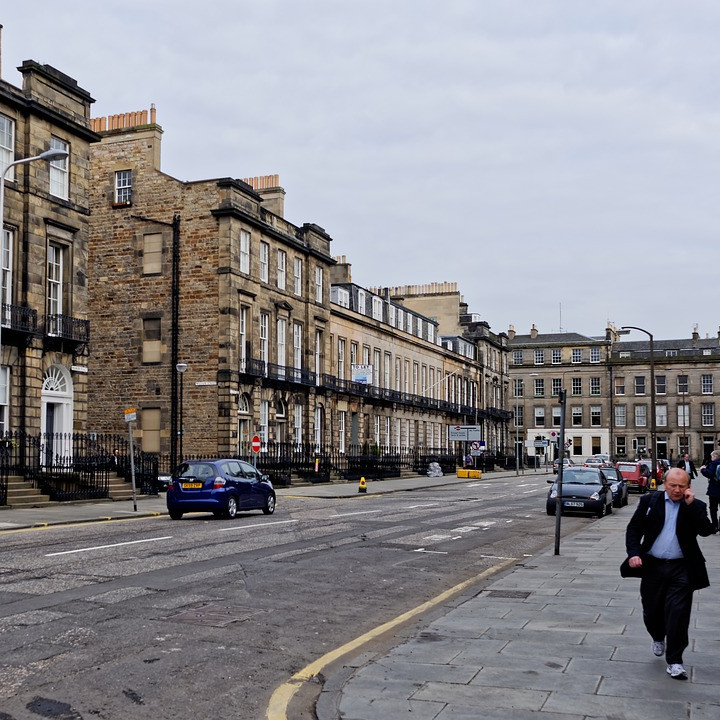Scottish housing wealth inequality on the rise
Property wealth held in Scotland has increased ten-fold over the last 50 years, but the last decade has been marked by rising housing wealth inequality, according to a new Resolution Foundation report.

Taking Stock, funded by the Scottish Poverty and Inequality Commission, examines the scale and distribution of housing wealth over time, and what this could mean for policy-makers mindful to spread the benefits of such wealth more effectively.
The report shows that property wealth across Scotland has increased rapidly over the past 50 years, rising in real terms from around £34 billion in 1968 to £300bn today. This growth – which has been driven primarily by rising house prices, but also by the increasing number of properties and transfer of public housing into the private sector – was particularly sharp in the years running up to the great financial crisis. Over this period (2001-2008), property wealth across Scotland increased by 23.4 per cent a year.
Taking Stock shows that while Scottish housing wealth has soared, it is not equally distributed across the country. In fact, housing wealth inequality is twice as high as income inequality, in large part because while there are very few families in Scotland today who have no form of income, over one in three Scottish households hold no property wealth at all. Those in the top income decile own around 30% of the nation’s property wealth, a share that has grown in recent years.
And while housing wealth inequality fell consistently between 1994 and 2008 as home-ownership rates rose, it has been rising over the last decade as many have struggled to get on the housing ladder. The Foundation notes that today levels of housing wealth inequality in Scotland are closing in on those of England and Wales, though home-ownership rates remain higher in Scotland (55 per cent in 2018, compared to 52 per cent in England).
The report explores Scotland’s wealth divides and finds that the biggest wealth gaps are in Scotland’s largest cities such as Aberdeen, Dundee, Edinburgh and Glasgow. Here, low rates of home-ownership are coupled with high rates of multiple property ownership, meaning the housing stock is held in fewer hands. Almost one in ten Scots now have multiple property wealth.
The Foundation adds that while the scale and distribution of property wealth across Scotland has changed dramatically over the last 50 years, wealth taxation has not – and is in dire need of reform.
It said that there is a strong case for further reforming council tax, Scotland’s biggest wealth tax, as it is highly regressive, inefficient – and fully devolved. With the Scottish Governmentcommitted to consult on council tax reform as part of the coalition agreement, the report explores a range of options, all of which would be improvements on the current system.
Finally, the report notes that more could be done to provide those who are unlikely to become homeowners any time soon with the sense of security that ownership brings, and that revenue raised from property tax reform could help to do this. It added that the Scottish Government could build on the recent introduction of indeterminate tenancies to increase security of tenure further, and look to provide more to support low-income families via further supplements to benefits.
George Bangham, research and policy analyst at the Resolution Foundation, said: “The amount of property wealth held in Scotland has soared across the last five decades, driven by rising housing prices and the transfer of public housing into private hands. But over the last decade, housing wealth inequality has also been rising. Today, almost one in ten Scots own more than one home, while over one in three Scots have no property wealth at all.
“Scotland needs to modernise its wealth taxes if it is to leverage this growing wealth and tackle inequality. This should include replacing the council tax with a more progressive property tax to tackle growing wealth gaps across Scotland and encourage the spread of wealth to more families across the country.”
Bill Scott, chair of the Scottish Poverty and Inequality Commission, added: “I welcome this research which clearly highlights the issue of rising housing wealth inequality in Scotland today. Property wealth brings with it a range of advantages, including a secure home, a source of considerable income for those with more than one property and the prospect of greater financial security in later life.
“A large proportion of those who do not own property are excluded from benefitting from these advantages and indeed locked out of many other opportunities. With so many people in Scotland struggling to find affordable homes, it is time to start considering action to redress this balance.”




